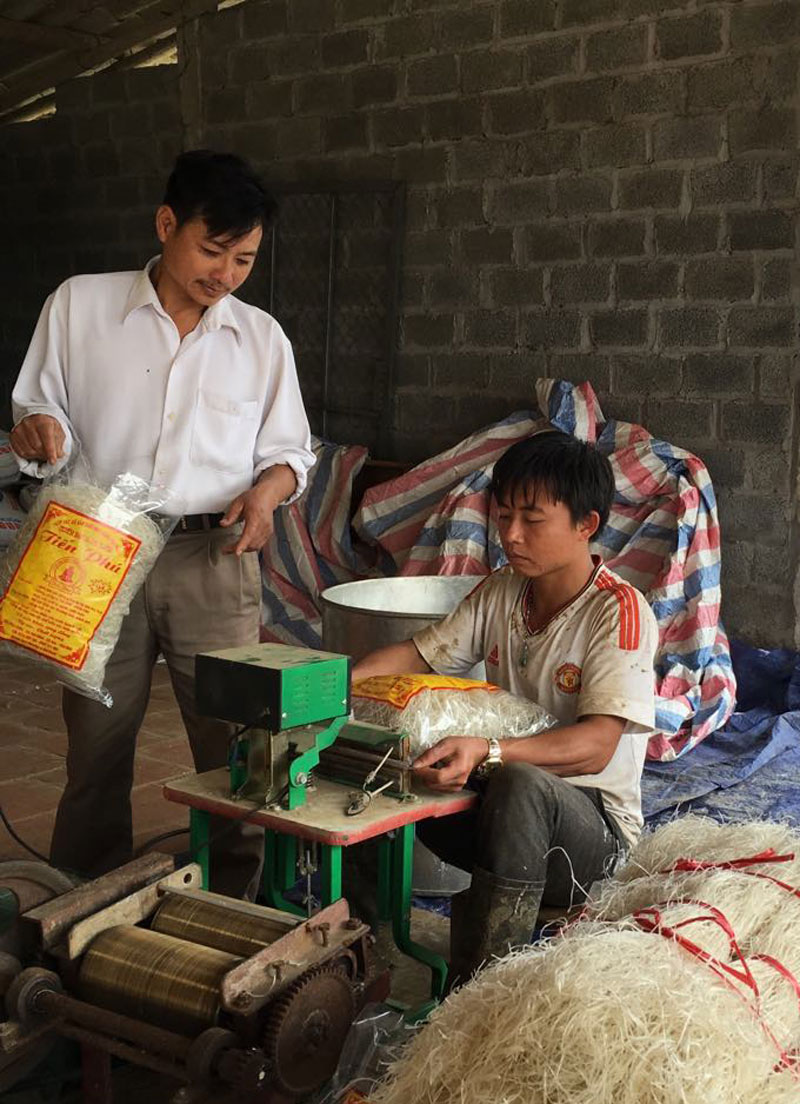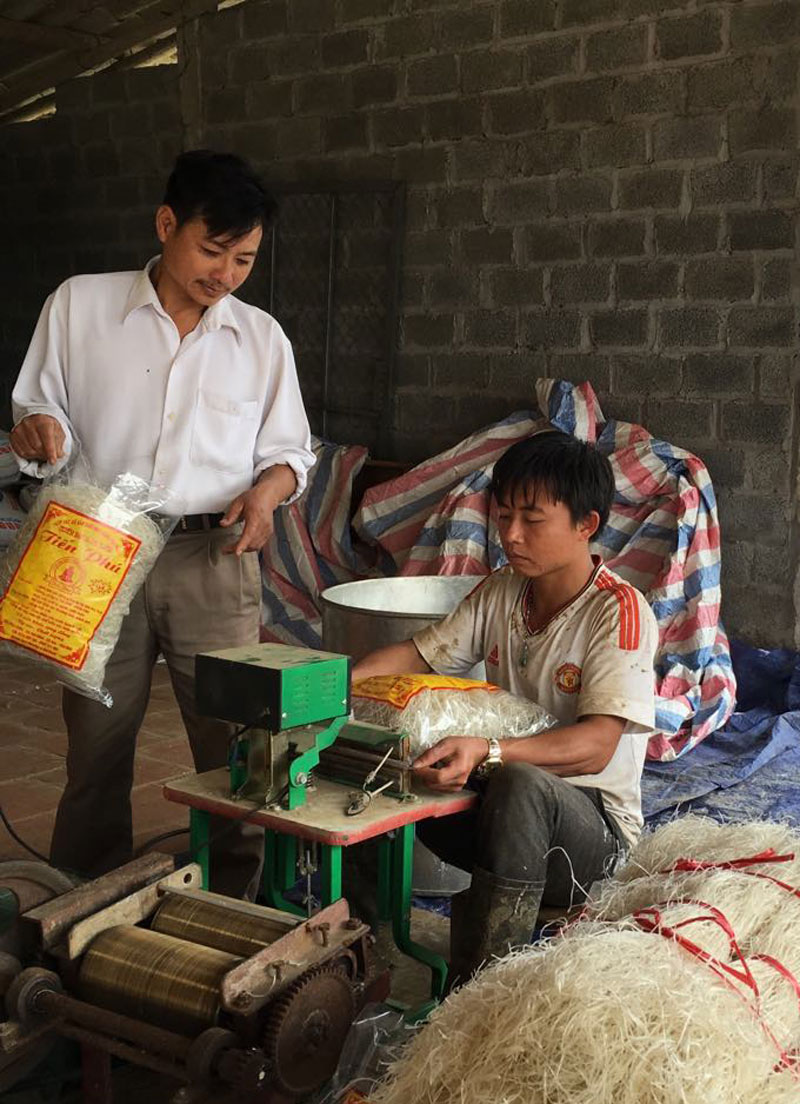
HBO – Ky Son district in Hoa Binh province is actively implementing the "One Commune One Product” (OCOP) programme, which is considered a lever to develop agricultural and rural economy. The programme’s purpose is that one commune has at least one key product which has comparative advantages, towards building brand names, and expanding production and consumption of key products, thus helping increase locals’ incomes and achieve sustainable poverty reduction.
The district now has
30 key products belonging to five commodity groups, which have high economic
values and can be developed into OCOP products. Of the total, 22 products are
food, one is beverage, four are medical herbs, two belong to the
souvenir-interior-decoration group, and one belongs to the rural tourism
service group. Total revenue brought by these products is valued at around 90
billion VND a year. The products are mainly sold in Hoa Binh and its
surrounding localities.
 Co-operative raising bees in Van
Tien commune, Dan Ha commune (Ky Son) with 1,200 beehives is building honey
brand.
Co-operative raising bees in Van
Tien commune, Dan Ha commune (Ky Son) with 1,200 beehives is building honey
brand.
On the basis of
registering typical product ideas of communes, the People's Committee of Ky Son
district has registered three products to participate in the OCOP programme in
the district in 2019, including: honey products of 1,985 beehives; dry
vermicelli of Tien Phu co-operative in Phu Chau and Phu Minh communes with a
capacity of 350 kg a day; Polyscias fruticosa wine of families of Dao Thi Hong An
and Duong Thi Huong in Ward 3 of Ky Son town with a capacity of 30 bottle a
day.
Talking about the prospect of implementing the OCOP programme, Hoang Van Minh,
Vice Chairman of Ky Son District People's Committee said that the opportunity brought
by the programme will be huge when all communes and towns in the district can
identify their key products, and ask for support from authorised offices when
facing difficulties in building the product connectivity and consumption chain,
and forming commodity-oriented concentrated production areas.
If being implemented
well, the programme will boost investment in production and processing, and
connect consumer markets, thus contributing to intensifying economic
development and increasing locals’ incomes, Minh said, adding that the
programme will also help communes speed up new-style rural area building./.
According to data from the Hoa Binh Provincial Party Committee, the industrial production index for the first six months of 2025 is estimated to have increased by 20% compared to the same period last year. This marks the highest year-on-year growth rate for this period since 2020.
In the first six months of 2025, Hoa Binh province’s export turnover was estimated at 1.145 billion USD, marking an 18.11% increase compared to the same period in 2024. Import turnover was estimated at $ 804 million, a 17.15% increase, which helped the province maintain a positive trade balance.
The lives of the ethnic minority farmers in Tan Lac district have gradually improved thanks to the new directions in agricultural production. This is a testament to the collective strength fostered through the professional associations and groups implemented by various levels of the district’s Farmers’ Union.
With the motto the "product quality comes first,” after nearly one year of establishment and operation, Muong village’s Clean Food Agricultural and Commercial Cooperative, located in Cau Hamlet, Hung Son Commune (Kim Boi district), has launched reputable, high-quality agricultural products to the market that are well-received by consumers. The products such as Muong village’s pork sausage, salt-cured chicken, and salt-cured pork hocks have gradually carved out a place in the market and they are on the path to obtaining the OCOP certification.
In the past, the phrase "bumper harvest, rock-bottom prices" was a familiar refrain for Vietnamese farmers engaged in fragmented, small-scale agriculture. But today, a new spirit is emerging across rural areas of Hoa Binh province - one of collaboration, organisation, and collective economic models that provide a stable foundation for production.
Maintaining growing area codes and packing facility codes in accordance with regulations is a mandatory requirement for agricultural products to be eligible for export. Recently, the Department of Agriculture and Environment of Hoa Binh province has intensified technical supervision of designated farming areas and packing facilities to safeguard the "green passport" that enables its products to access international markets.



 Co-operative raising bees in Van
Tien commune, Dan Ha commune (Ky Son) with 1,200 beehives is building honey
brand.
Co-operative raising bees in Van
Tien commune, Dan Ha commune (Ky Son) with 1,200 beehives is building honey
brand.